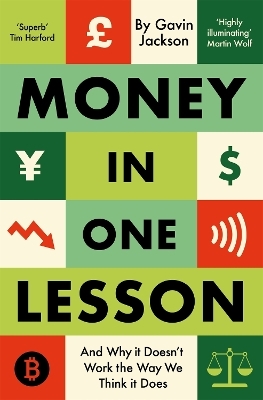
Demand for Money
Transaction Publishers (Verlag)
978-0-7658-0961-2 (ISBN)
Annual time series of velocity for several countries from the late nineteenth century to the late twentieth century display a U-shaped pattern. Existing theories can explain each section of the velocity curve-the falling, flat, and rising parts-but the overall pattern is not consistent with any one theory. Here the authors put forth a comprehensive explanation for this behavior over time. Their theory is largely an extension of the approach of Knut Wicksell, the Swedish economist who stressed the role of substitution between monetary assets. This approach, which emphasizes institutional variables, is incorporated into the arguments for the traditional long-run money demand (velocity) function. Four types of empirical evidence strongly support the authors' theory: econometric studies of the long-run velocity function for several countries; a cross section study of approximately eighty countries in the postwar period; a case study of the Swedish monetization process in the fifty years before World War I; and an examination of the time series properties of velocity.
Demand for Money suggests that institutional factors, as opposed to real income, play a greater role in velocity than previously thought. And these institutional factors have a major impact on monetary policy. This is a book that will prove of great value to economists, monetary strategists, and policymakers.
Michael D. Bordo is professor of economics and director of the Center for Monetary and Financial History at Rutgers University, New Jersey, and a research associate of the National Bureau of Economic Research, Cambridge, Massachusetts. He has also taught at the University of South Carolina, Carleton University, the University of California, Los Angeles, Carnegie Mellon University, and Princeton University. He is editor of a series of books for Cambridge University Press, Studies in Macroeconomic History, and the author of Essays on the Gold Standard and Related Regimes, and (with Anna J. Schwartz) A. Retrospective on the Classical Gold Standard 1821-1931. Lars Jonung is professor of economics at the Stockholm School of Economics. He is the editor of The Stockholm School of Economics Revisited, and the co-author (with Steve H. Hanke and Kurt Schuler) of Russian Currency and Finance: A Currency Board Approach to Reform.
Introduction; Evidence and theories of the long-run behavior of velocity; The institutional approach; The institutional approach: The long-run econometric evidence; Monetization and the behavior of velocity in Sweden, 1871-1913; The global evidence since the 1950s; The stochastic properties of velocity: Evidence for five countries; Conclusions and implications
| Erscheint lt. Verlag | 30.6.2003 |
|---|---|
| Verlagsort | Somerset |
| Sprache | englisch |
| Maße | 152 x 229 mm |
| Gewicht | 294 g |
| Themenwelt | Wirtschaft ► Allgemeines / Lexika |
| Wirtschaft ► Volkswirtschaftslehre ► Finanzwissenschaft | |
| ISBN-10 | 0-7658-0961-3 / 0765809613 |
| ISBN-13 | 978-0-7658-0961-2 / 9780765809612 |
| Zustand | Neuware |
| Haben Sie eine Frage zum Produkt? |
aus dem Bereich


